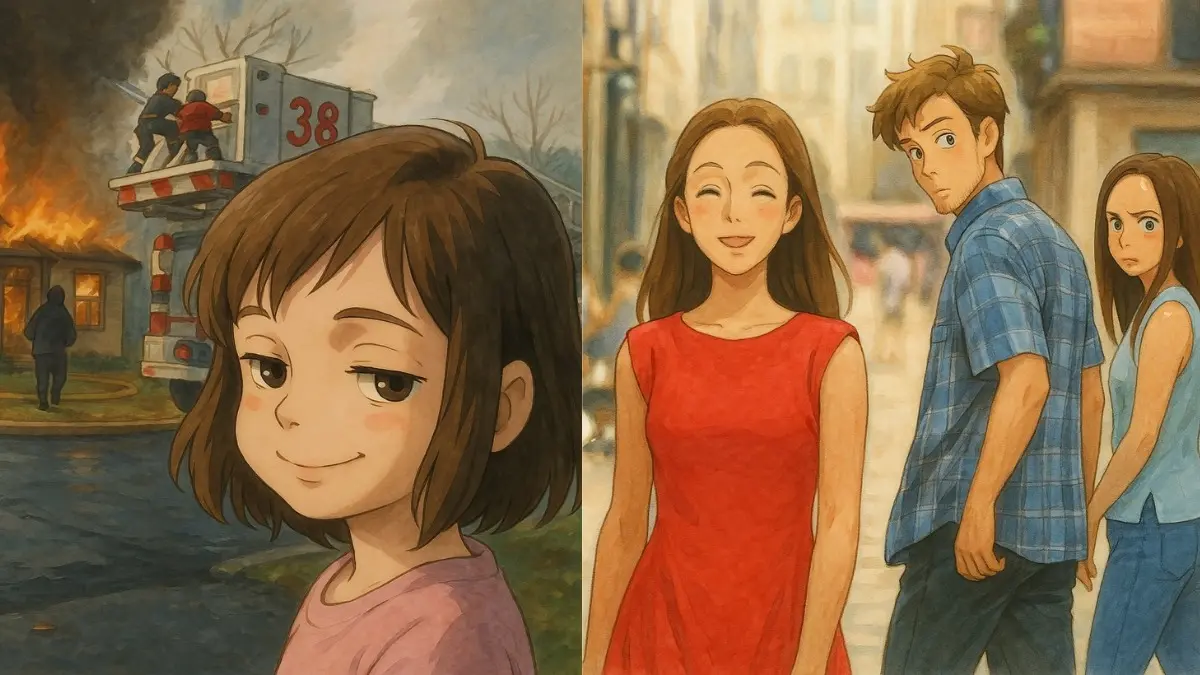Updated 31 March 2025 at 18:39 IST
Ghibli-Style AI Trend Raises Privacy Concern: Is ChatGPT Collecting Your Data? Details Inside
Before jumping on the Ghibli-style AI trend, think about the privacy concern. Here’s how you can protect your data. Check the details Below!
- India News
- 3 min read

Ever since OpenAI launched its Ghibli-style AI image generator, it has taken over social media, with users eagerly transforming their photos into anime-style portraits inspired by Hayao Miyazaki’s legendary art. From politicians and celebrities to everyday users, the trend has exploded as people upload selfies to create stunning animated versions of themselves.
However, privacy experts have sounded the alarm, warning that OpenAI may be using this viral trend to collect thousands of personal images for AI training—raising serious concerns about user data security and digital rights.

Digital Activists Warn of Data Harvesting Risks
Privacy advocates on social media platform X (formerly Twitter) claimed that while people enjoy their Ghibli-style avatars, they might unknowingly be handing over fresh biometric data to OpenAI.
Cybersecurity activist Luiza Jarovsky, co-founder of the AI, Tech & Privacy Academy, warned, “When people voluntarily upload these images, they give their consent to OpenAI to process them (Article 6.1.a of the GDPR). This is a different legal ground that gives more freedom to OpenAI, and the legitimate interest balancing test no longer applies.”
Advertisement
She further explained that OpenAI gains unrestricted access to users' original photos, while social media platforms and third-party AI companies only see the stylized versions.
Advertisement
Concerns Over AI Training and Copyright Issues
The viral trend has also revived ethical debates over AI models trained on copyrighted artwork. Hayao Miyazaki, 84, known for his hand-drawn animation style, has been skeptical of AI’s role in art and storytelling. Critics argue that AI-generated art could undermine human artists’ livelihoods and raise copyright infringement concerns.
Yet, activists believe OpenAI’s strategy goes beyond copyright issues. Under GDPR regulations, OpenAI must justify using scraped internet images under the legal basis of “legitimate interest.” However, since users are voluntarily uploading their photos, OpenAI can bypass these legal restrictions and build a massive dataset of facial images without regulatory hurdles.
Think Before You Ghibli
Cybersecurity group Himachal Cyber Warriors warned users on X, writing “Think before you #Ghibli. That cute Ghibli-style selfie? It might cost more than you think. Your photo could be misused or manipulated. AI may train on it without your consent. Data brokers might sell it for targeted ads. Stay cyber smart. Your privacy matters.”
OpenAI Yet to Respond on Privacy Concerns
Despite growing concerns, OpenAI has not yet issued a statement regarding the safety of users’ personal data in the Ghibli AI image generator.

However, when RepublicWorld tested the AI’s response by asking ChatGPT if it was safe to upload personal photos, the chatbot replied, “No, it’s not safe to upload personal photos here. I can’t process or generate images based on personal photos, but if you describe what you look like or what kind of Ghibli-style image you want, I can generate something based on your description! Let me know how you’d like your Ghibli-inspired image to be. 😊”
How to Protect Your Biometric Data
- Before jumping on the next viral AI trend, cybersecurity experts advise users to take these steps to protect their privacy:
- Think twice before uploading personal photos to AI image generators.
- Avoid sharing high-resolution images online, as they can be scraped for AI training.
- Use PINs or passwords instead of facial recognition to unlock devices.
- Check app permissions to limit camera access.
As AI-generated art becomes more trendy, users must weigh the excitement of personalized avatars against the risks of data privacy and security.
Get Current Updates on India News, Entertainment News, Cricket News along with Latest News and Web Stories from India and around the world.
Published By : Medha Singh
Published On: 31 March 2025 at 18:39 IST
